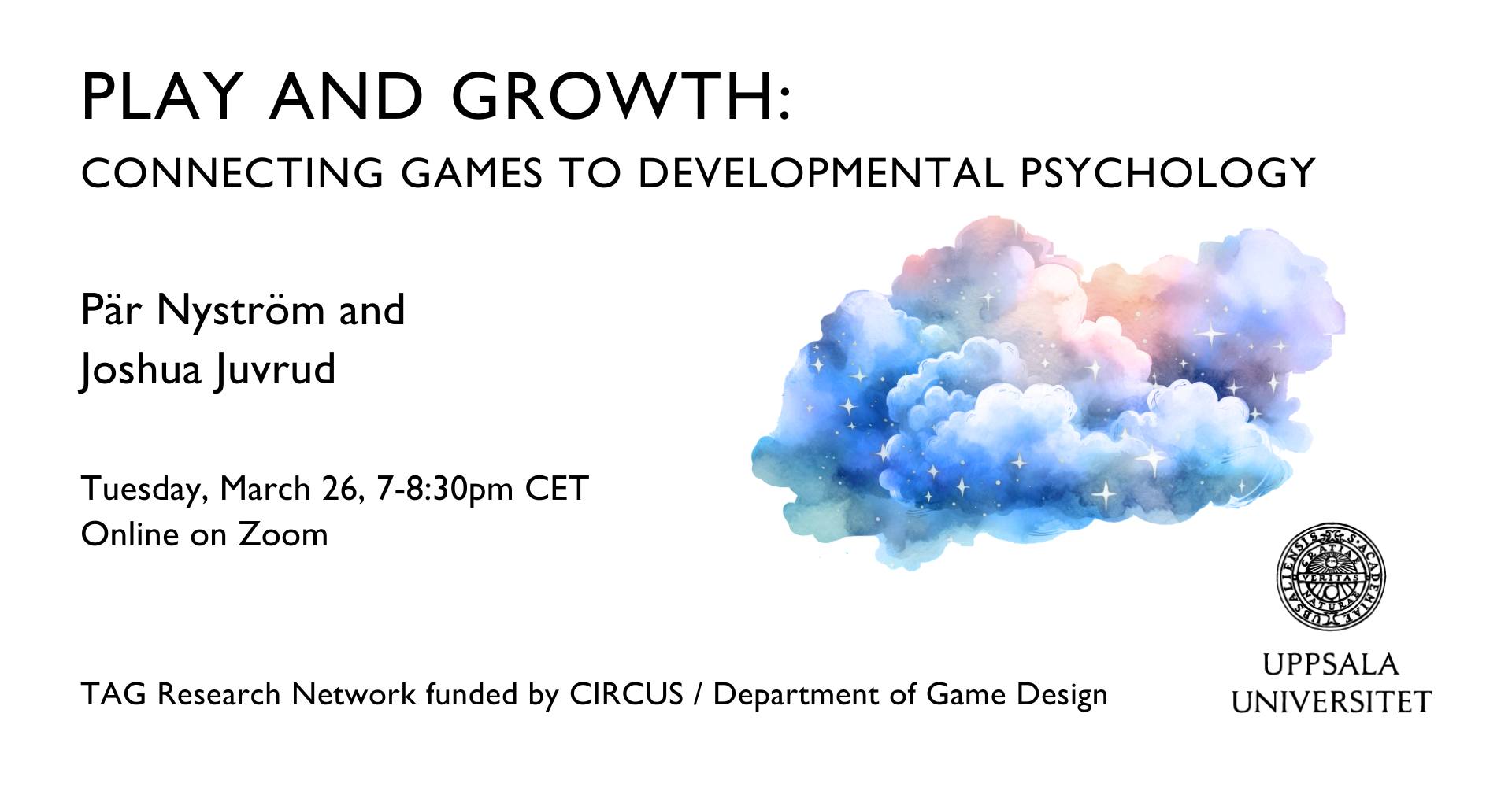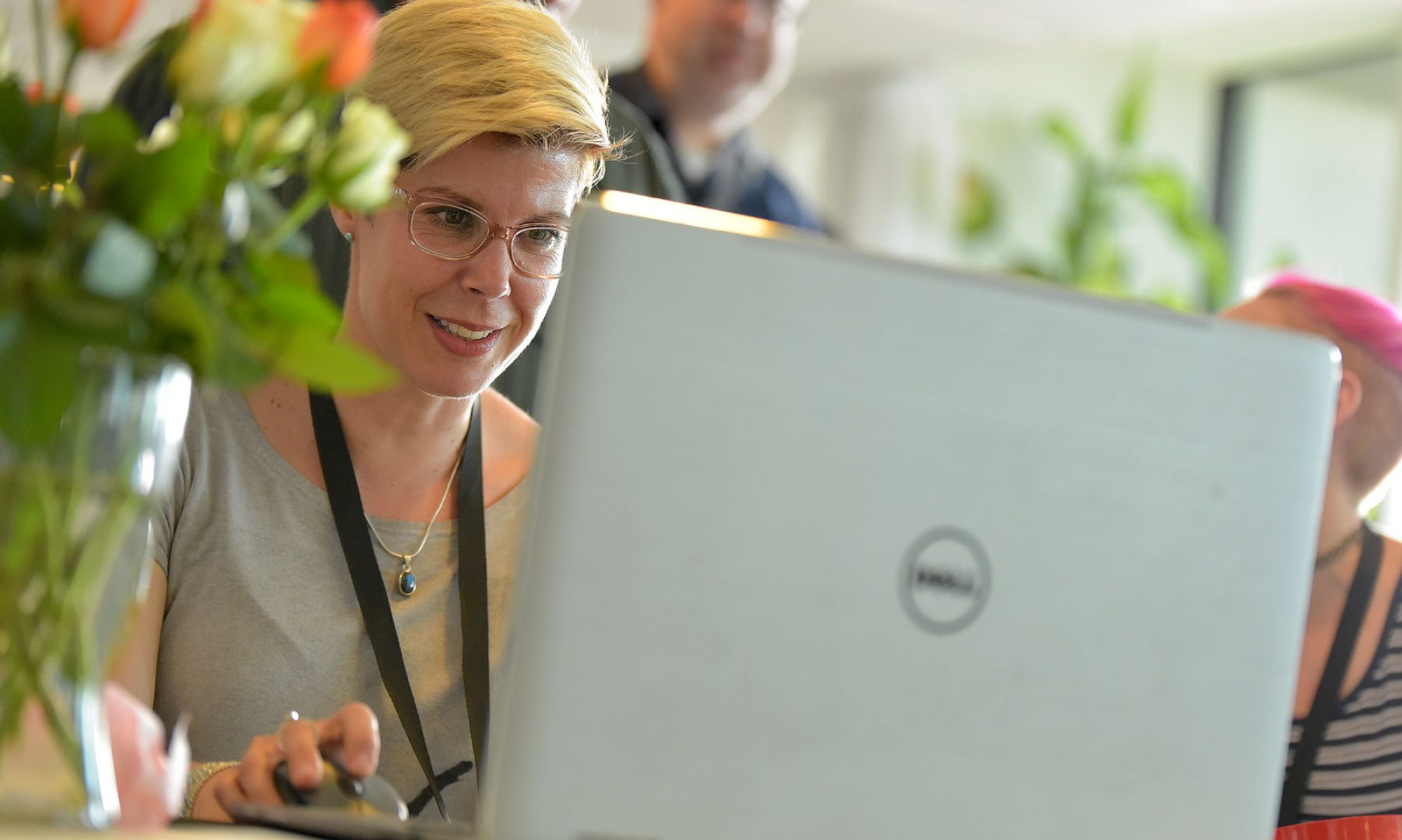We’re delighted to announce the lecture “Play and Growth: Connecting Games to Developmental Psychology” by Pär Nyström and Joshua Juvrud!

When: Tuesday, March 26, 7-8:30pm CET
Where: Online on Zoom
Register here: https://tinyurl.com/5dc54c87
RSVP here: https://tinyurl.com/yn6vbnjp
Link will be provided to registrants on the day of the event. Make sure to sign in with the same name you used to register.
Description:
During this lecture, we will present a timeline from birth, to the adolescent gamer, and to playful adults, examining how the environment and biological conditions influence development and play. We will use pieces from our research repertoire, which includes both methodological and theoretical points, to build a platform for understanding the developmental perspective. An overarching theme is how psychological processes interact with different environments, such as various cultures or digital environments, and how we work in practice to understand development through measurement and analysis. We will describe the ways in which we seek to understand how different game players (with different traits and experiences) interact with various game mechanics, and are in turn affected by game experiences. Such game experiences throughout development can affect learning, expertise, prosocial behavior, and more.
Presenters bio:
Pär Nyström is an associate professor at Uppsala Child and Baby Lab in the Department of Psychology at Uppsala University. His research areas include the development of perceptual, cognitive, and social abilities during infancy, as well as in older children and teenagers. The research questions encompass both neuropsychiatry and fundamental research on how culture and the environment impact development. Pär has extensive experience with various methods, such as eye-tracking, EEG, motion capture, and other quantitative methods. He has also developed software for data collection in inaccessible environments and for creating transparent analysis workflows. An overarching interest is the transition between “average” and “extreme” and how this zone is influenced by categorical cutoffs in different environments.
Joshua Juvrud is an assistant professor at the Department of Game Design at Uppsala University. His work is focused at the intersection of two fields: in developmental psychology, he seeks to understand how children learn about the world through studying the social cognitive processes involved in development. In games research, he explores individual differences in game players across all ages, and the interaction between human psychology, play, and the design of games. Joshua has extensive experience in psychophysiological and quantitative measures in these areas, including eye-tracking, pupilometry, galvanic skin response, and heart rate.
This series is hosted by the Games & Society Lab at the Department of Game Design, Uppsala University Campus Gotland. The series explores the use of analog role-playing games as vehicles for lasting personal and social change.
